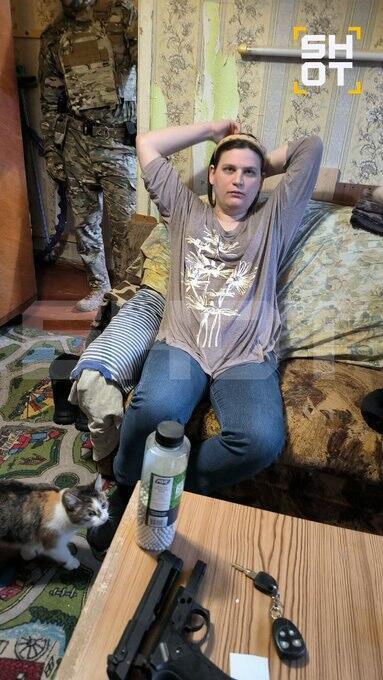Getting your Trinity Audio player ready...
A Russian military court has sentenced Olga Sivushkova, a 37-year-old transgender woman and former Israeli citizen, to four years in a penal colony for publicly “justifying terrorism” online.
The charge stems from posts she published on Telegram expressing support for Ukraine and allegedly sharing a link to an interview with a spokesperson for the anti-Kremlin Freedom of Russia Legion.
Sivushkova, a computer programmer born in Tajikistan under the name Andrei Pshenichnikov, moved to Israel with her family at age 13 and served in the Israel Defense Forces. In 2012, she changed her name to Olga and publicly renounced her Israeli citizenship, declaring her desire to “join the Palestinian resistance” because she “hated Zionism.”
She relocated to the Dheisheh refugee camp near Bethlehem, where she worked as a waitress and presented herself as a “pro-Palestinian Russian activist.” However, she was twice deported back to Israel by Palestinian police, and later arrested in Egypt for photographing security installations. She served a two-year sentence before returning to Russia, where she underwent gender-affirming surgery — a procedure banned in the country as of 2023.
Sivushkova later married Russian citizen Nikolai Sivushkov and settled in the city of Vologda. In January 2024, Russian authorities arrested her on suspicion of publicly supporting terrorism due to her Telegram activity. She was placed in pretrial detention, where she launched a hunger strike to protest alleged mistreatment, including being denied basic hygiene items and forced to sleep on the floor. “They’re trying to break and humiliate me,” she said during a court appearance by video link. “The situation is terrible. I sleep on the floor. I’m on the 13th day of a hunger strike.”
2 View gallery


Russian President Vladimir Putin
(Photo: Reuters/Sergey Bobylev/Host agency RIA Novosti)
Get the Ynetnews app on your smartphone: Google Play: https://bit.ly/4eJ37pE | Apple App Store: https://bit.ly/3ZL7iNv
Human rights group Russia Behind Bars reported that Sivushkova also accused investigators of conducting an illegal search of her home and claimed her court-appointed attorney tricked her into signing a confession by falsely promising she would only receive a fine.
During the trial, which began in April in a St. Petersburg military court, prosecutors accused her of inciting violence against President Vladimir Putin. Her husband was called as a witness, and the court reviewed her Russian and Israeli passports as well as her formal renunciation of Israeli citizenship. In one session, the court offered to close proceedings to protect her gender transition records, but Sivushkova refused, saying, “Let it all be revealed.”
Sivushkova eventually admitted guilt and ended her hunger strike. Her attorney requested a lenient sentence, citing her cooperation and willingness to accept punishment. The court sentenced her to four years in a general-regime penal colony and banned her from running websites for an additional two years. Sivushkova stated she would not appeal the verdict.



